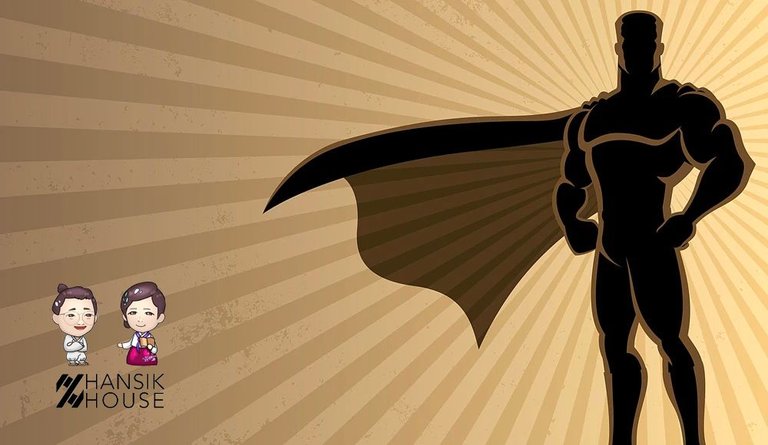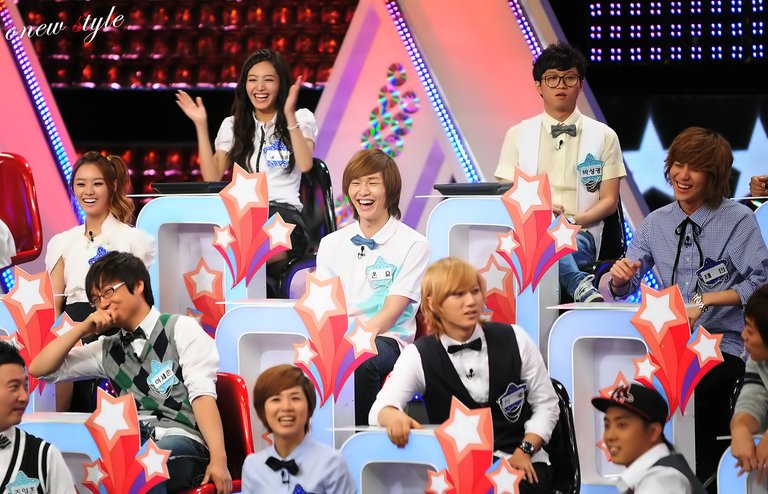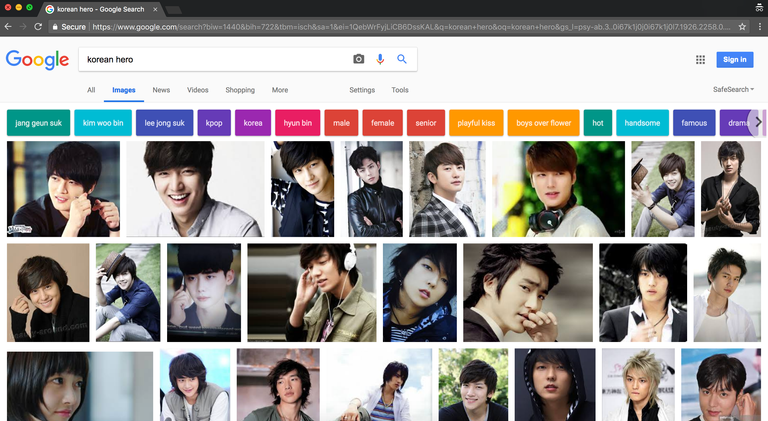
Unlocking The Hero Potential
Whenever an international event such as the Olympics comes around, the nation of South Korea is often swept up in one heavy mystery - how come Korea can’t produce that many “outliers?”
I use that term to reference Malcolm Gladwell’s famous title for those who put in their due ’10,000 hours’ in some skill to become a talented pianist or linebacker or mathematician. These are the Yoyo Mas, the Yuna Kims, the Tom Bradys (too soon?), and everyone else that rises to the top through gumption and rigor.

And for some reason, these types of people are markedly absent from South Korea. Sure, Olympic champions emerge every so often and maybe a superstar like PSY will appear once in a blue moon, but in comparison to the wealth and resource the country holds today, very few have become outliers.
There are a number of oft repeated reasons for the homogeneity of ‘success’ in the country, including “lack of individual agency” and “strict societal standard.” It’s the environment that’s overbearing and oppressive. Most Koreans, especially younger generations, understand this all too well.
But the reason I want to discuss today is not just that of external influences upon each individual. There is a question of where the goalposts are and what each individual would strive for if there were no stringent communal obstacles in place.
In Korea, Most Celebrities are Idols
Well duh. But what this means is that they’re not “heroes.” These are idols that are propped up in a way that only Korean would know how - by their looks and momentary hype. These actors and actresses and dancers and singers and random pretty people that apparently underwent massive amounts of artificial bodily transformation are strutted around on stage and labeled with the title “idol.” Korean media is not filled with people who rise naturally to the top through vigilance and commitment. The majority of them are like the Paris Hiltons and Kim Kardashians of the world, propped up by external fame, wealth, and peripheral attention. No shade thrown at Paris and Kim as they’ve managed to turn that superficial interest into robust careers, but the point is to differentiate them from dedicated practitioners with real missions in the entertainment industry. Korea is all Paris and Kims.

A typical celebrity round-up. Source
I’ll throw my hypothesis in here for sake of shock-factor discussion. In Korea and global Korean society, we are not encouraged to be individually different. We are encouraged to aspire to the same goals of reputable education and enviable work which both narrow down to a handful of options. Are personalities as a result become fairly uniform or are at least directed to follow a very particular path of development. There is deviance of course (thank God) but what the implications of this, as this very attitude permeates through education and every work setting, create a society where its individuals are less confident and capable of being individuals. Thus the general addiction to outward appearance and fashion.

Google "Korean Hero."
When it comes to media culture and the realm of celebrities, this becomes even more dire. When we turn on the TV in the US, we’ll likely see recognized powerhouses like Stephen Colbert, Hugh Jackman, Jennifer Lawrence, Steph Curry, and so on. Sure, there are the occasional hyped up housewives of (enter random city here) but for the most part, those with the gumption for a long-term career are those with high levels of talent and dedication. In short, their aim isn’t to be different (famous, rich etc.); Instead, their aim to is be themselves (which for decades has been a different path).
You can see where I’m going with this and my personal rationale for why, like many types of other trends in Korea (music, food, hangout spots, pet choice), celebrities emerge and disappear at a faster rate than any media culture in the world. Their “difference” is an artificially produced one that can be easily replicated by others - the basis for the entire entertainment industry in Korea and why being a celebrity is seen as a viable career goal in itself.
By using the term “artificiality,” I’m not merely referring to plastic reformations of body and face. I also mean to include the umbrella culture of believing that talent and purpose can be indoctrinated into anyone. In Korea, a talent such as singing is less seen as a natural gift that is nurtured through rich cultural experiences. It is more regarded a technical skill that simply requires X hours of formal education. Hence the wide-reaching and formulaic way that Korean society attempts to motivate all disciplines ranging from sports players to actors.

Schools for training future Pop-Starts Source
So is this necessarily worse? I’d like to open that discussion up to you, whether Korea (and many other countries that follow the same model of artificiality) should strive to help nurture ‘legends’ beyond the classroom, if these should be some cultural acknowledgement that each one of us have unique potential beyond the crafting of our image.
See you in the comments. Steem on.

Ive also wondered over the years why koreans call singers and entertainers "idols." I dont follow celebrities and time-to-time I check to see who is the next it-girlgroup. Other than Davichi and Sweet Sorrow, I have yet to find a korean singer or group that I still go back and listen to even after all these years. Regarding kpop over the years and thanks to the wave of elimination tv programs, Ironically none of these "idols" stick around long enough to be even considered idols in my eyes. And don't even get me started on the "comeback"
Hahahaha, ah yes... the seasonal comeback...
Unfortunately it seems to be a misunderstood application in Korean culture to use the term 'idol' without really understanding what the word means. It is very unfortunate because it conflates the kids of EXO with the terminology used for historic role models in other countries.
한국에 사는 친구가 말해줬는데 요즘 초등학생들의 인기 장래희망이 아이돌 이라고 합니다. 티비에나오는 이쁘고 잘생긴 아이돌의 좋은 모습만 보여 아이들의 장래희망도 많이 바껴가고 있는것같아요. 사실 그뒤엔 피나는 노력과 좌절도 많을텐데 말이죠.. 오늘도 좋은 이야기 감사합니다.
그 아이돌이 상품인것, 사회가 바뀌는것이 그렇습니다. 고맙습니다!
사실 아주 어릴때부터 준비한다고해도
데비해서 성공하는 케이스는 아주 적지요!
너무 거기에만 몰리는 문제가 있다고 생각합니다!
준비 콘셉을 이해할수 없습니다. 그 잘하는것을 키우고, 준비한다 아니라. 가끔 없는 텔런트, 유명을 준비하는게 조금 이해하기 힘든 부분인데요. 큰 문제라고 생각합니다.
Hello @hansikhouse...
I love the topic you chose to discuss because although you are using South Korea as a reference point here, the theme of this article has global tentacles...
Thats it! The world does not appear to be changing in accordance with natural changes. They do not realize the world has changed and we are no more in the beginning of the birth of industrialization when education matters most. And that's a big issue...
That's one of its major disadvantages. People. No longer believe in their aptitude ability...
Thats for this masterpiece. I wish more people could read this
@eurogee
thanks for the support and comment @eurogee!
Nice
우리나라의 아이돌 친구들을 보면 너무 상품화 되어가는 것 같아요..
인성,성격이 완전하게 형성되기 전부터 사회에 뛰어들어 치열하게 경쟁하는 모습을 보면서 안타깝기도 합니다. 그들에게 인위적인 아이돌이라는 표현을 하는것보단 좀 더 자연스럽게 녹아난 체계적인 교육시스템으로 그들이 어른이 되어서도 도태되지 않고 사회에 잘 스며들 수 있도록 해주는 것이 중요하다고 생각해요.
좋은 글 감사합니다.
유명을 준비하고 경쟁하는것이 안타깝습니다. 다른곳에 탈렌드도 많을것인데요. 고맙습니다.
아이돌이 되기 원하는 학생들이 정말 많은데 아이돌뿐만아니라
모든직업이 성공하기 힘들겠지만 엄청노력과 시기가 잘맞아야하는 직업같아요. 데뷔는 했지만 빛을 못보는 아이돌들도 있지요 ㅜㅜ
한식하우스님 즐거운 하루되세요^^
사회의 패턴이 문제 같습니다. 우부님도 좋은하루 보내세요!
우리나라에서 유수의 k-pop 스타가 배출되는 것은 혹독한 경쟁에 있다고 봅니다. 아이돌 가수 뿐만 아니라 IT 업계나 서비스 업계에서도 까다로운 한국을 시험 모델로 삼는다고 한다는데, 서비스와 개인적인 취향 등에 굉장히 민감한 것 같습니다. 경쟁으로 인해 어릴 때부터 동심을 잃어버리고, 아이돌 가수 훈련을 받는 등의
상품화는 미래의 도약을 위한 역경이기도 한다는 것이 안타까운 일이에요.